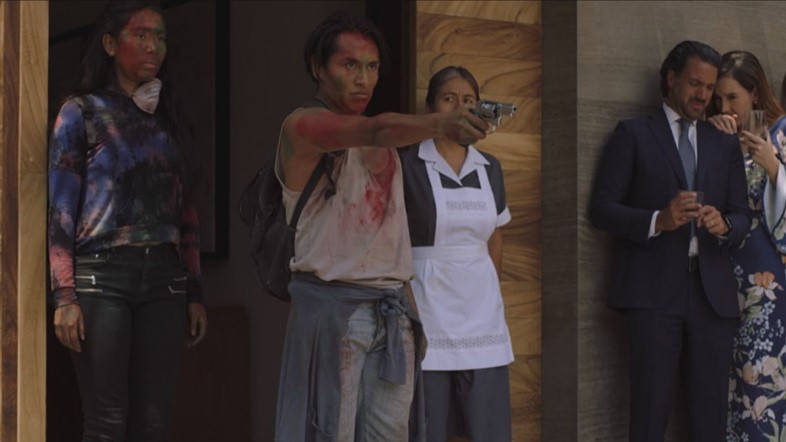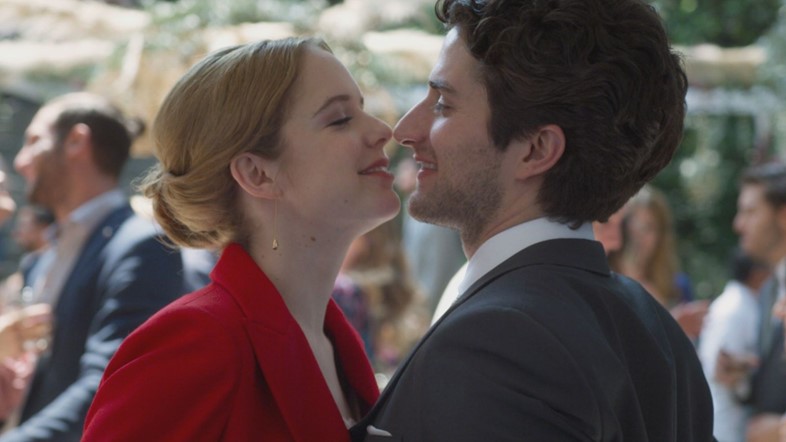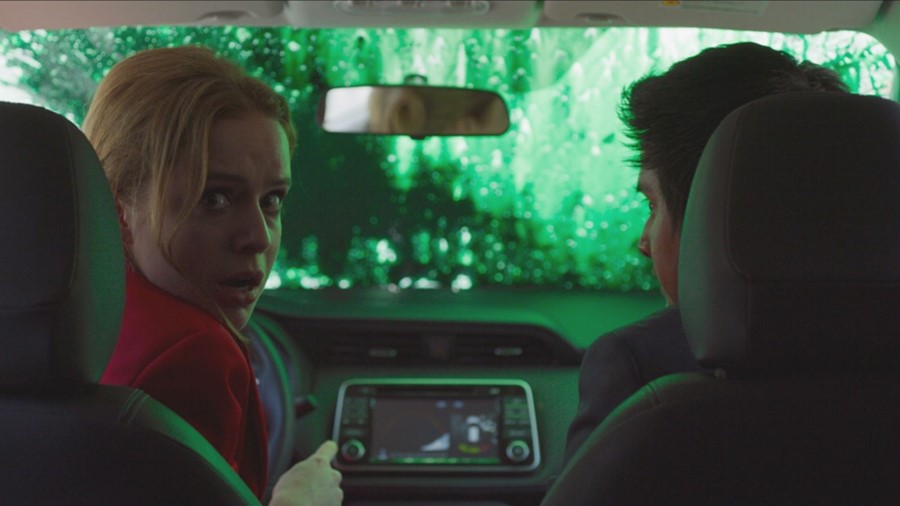“People sometimes question if the film is too extreme,” the director says, as his dystopian political drama hits UK cinemas. “And I say no”
“I would dare say that it’s flattering to raise all this controversy,” says Michel Franco of his latest feature New Order. A Grand Jury Prize winner at Venice Film Festival 2020, the film’s initial trailer, nonetheless, sparked outrage in Mexico, where the director was accused of classism, racism and stereotyping for his depiction of a violent social revolution from the perspective of the rich and powerful.
A brutal and bleak portrayal of a country plunged into turmoil, New Order eschews any sense of romanticism with the idea of toppling an unjust regime, focusing instead on the chaos that looms if the upper-classes continue to ignore those in need. It’s a statement that transcends borders, and on August 13, 2021 the film arrives in UK cinemas ready to go to war again. But incendiary reactions, says the filmmaker, should be directed elsewhere. “The film is showing how wrong we are living, and it’s painful to watch … I wouldn’t say I enjoyed [the backlash], but it proved that the movie needed to be made.”
In a chic, concrete-and-glass home, a high-society wedding takes place to the sounds of cheers and laughter. Crowds of well-dressed, white partygoers indulge, while servants toil in the kitchen and laundry. But beyond the walls of the enclave, armed protesters have raided a public hospital as an uprising begins to gain traction.
Deaf to the riots outside, the affluent partygoers soon find themselves paying the price for their ignorance. Militant protesters scale the estate, and begin mercilessly executing partygoers; hostages are taken, demands are made, and military rule is imposed city-wide amidst a smash-and-grab for power.

With pandemic-driven inequality on the rise, the gilets jaunes in France, the Black Lives Matter movement, and the clashes in Hong Kong dominating the news over the past few years, the film’s 2021 release feels timely on a global scale. But these injustices have been perpetuated for generations, Franco insists. “Every ten minutes someone will approach and ask for money, for a little help,” he describes of his native Mexico. “Even if you’re following Google Maps or Waze, within five minutes you might find yourself in a favela. At every red light, there are two or three people [asking for help]. Sometimes they’re just six-year-old kids.”
It was the impact of seeing children his own age barefoot on the streets – and the country’s enduring ineffectiveness to rectify their poverty – that drove Franco to make this film in his adulthood. “I remember wanting to give away whatever toy I had, or my sweater. But then throughout the years, you understand that nothing changed because I gave away a few things.” He describes the present situation in Myanmar as a glaring example of what can happen when tensions are left unresolved. “We need to make changes,” he says. “Or it’s going to be too late all of a sudden.”

Violence is captured in brutal fashion, in a style recalling the works of Michael Haneke. Grimace-inducing sound design, meanwhile, makes every gunshot startle (a feat partly accomplished by Jaime Baksht and Michelle Couttolenc, who won the Academy Award for Best Sound this year for their work on The Sound of Metal). And while Franco claims that he never shows more than is necessary, the suggestive images and sounds of cattle prods and pistols come uncomfortably close, evoking some truly disturbing images in the mind of the observer.
“People sometimes question if the film is too extreme,” says Franco. “And I say no. People are used to watching a movie where heroes go through a lot of difficulties, but in the end the good wins. We all know that life is the very opposite.”
And while film might be an effective medium through which to bring these issues to light, Franco’s not so naive as to think they will change the world. The shockwaves New Order caused among critics, awards ceremonies and the public, after all, means little if it doesn’t reach those who wield the power. “Look at what happened in Sarajevo when I was a teenager,” he says. “U2 were making songs about it. Like, Jesus, they didn’t need a song, they needed a solution. And the world simply didn’t move.”
His detractors might not be scaling his garden fence yet, but with films like New Order Franco has begun a campaign that shouldn’t be silenced. “One day it will happen,” he concludes, glancing warily out the window from his desk. Here’s hoping he’s wrong.
New Order is at UK cinemas from August 13.
